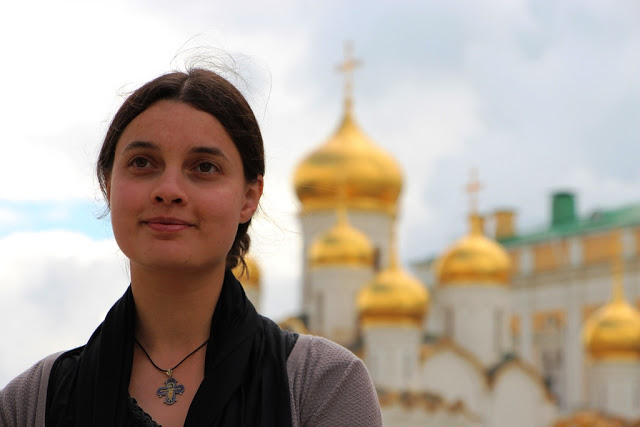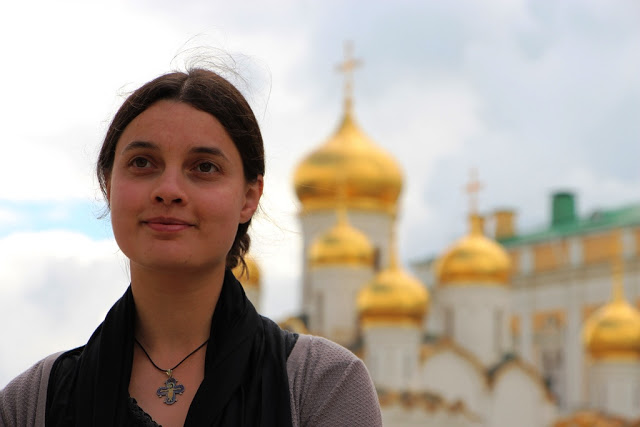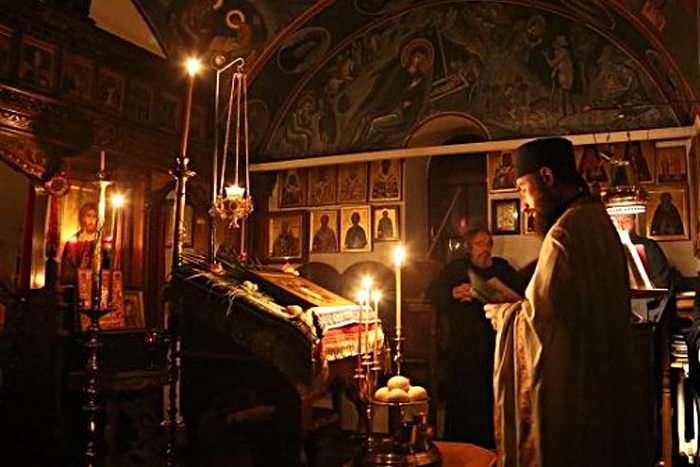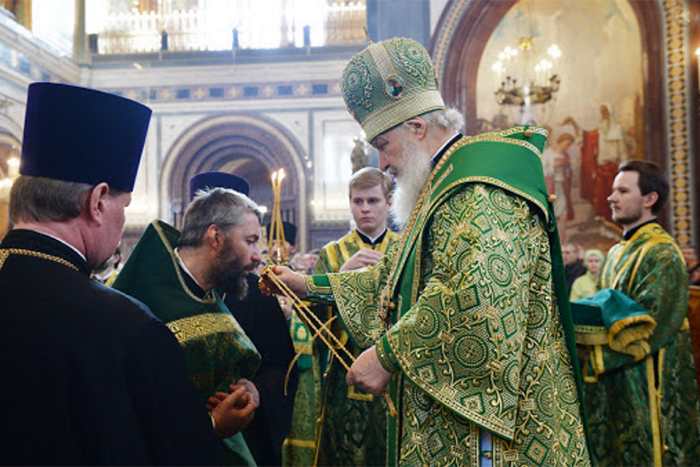
Every “traditionally Orthodox” country has a special title in its language for the priest’s wife. In America, we tend to bring these terms into our parishes based on the ethnic background of the majority of the parishioners, as our own English language really has no “comfortable” equivalent. Here are a few:
Presbytera (pres vee TEAR a) — Greek, for ‘priestess’
Papadiya or Popadia (PO pa DEE ya) — Serbian/Balkan
Matushka (MA toosh ka) — Russian, for ‘mother’
Panimatushka (PA nyee MA toosh ka) or Panimatka — Ukrainian, for ‘little mother’
Pani (PA nyee) — a shortened form, common in the Carpatho-Russian tradition
Khouria (ho REE ya) — Syrian
The wife of a deacon has a title, too! In Greek, it’s Diakonissa (for ‘deaconess’). In the Slavic tradition, it’s the same as the title used for the priest’s wife! How do you use the title, once you learn to pronounce it? Just use the title with your priest’s wife’s given (Christian) name, e.g., Presbytera Helena or Matushka Mary. This honorific is appropriate when speaking to her directly, or when referring to her in a conversation with others: “Khouria Julia is making copies of the recipe for the workshop next week.”





Thank you for posting this! I think many will find it very helpful. However, I would like to offer one correction. The title “Presbytera” actually translates to “eldress” (female of “elder”) not “priestess.” It comes from the Greek word πρεσβυτέροις (presbyterois – an elder, a member of the Sanhedrin, an elder of a Christian assembly) as found in 1 Peter 5:5, Acts 4:5, and elsewhere.
In our Ukrainian Orthodox church, the priest’s wife has always been addressed as “Pani Madka”. The new, young priests wives are no longer wanting to be called Pani Madka, but rather Matushka. They are saying that the term pani has a negative connotation and don’t want it to be used with them. Can someone explain this to me? From what I think I know, the term Matushka is Russian and not Ukrainian.
My guess is that ‘pani’ is associated with Poland. So for whatever reasons those priests wives don’t want to be associated with Poland. ‘Pani’ is a word you would use to adress a married woman in Poland and it means ‘lady’. While ‘matka’ means ‘mother’ in Polish. From what I know, ‘matushka’ is Russian. You get the rest.
In Christ,
Rdr. John
This came up in my family because my wife’s mother’s family are Ukrainian Canadians, and I’m an Anglican priest. Her aunt said the term they use at their Ukrainian Catholic parish is добра жінка, literally “good woman.”
A deacon’s wife in Syrian/Antiochian can be called shamassey (the deacon is shamas, but I’ve only heard that used like once; likewise I’ve never heard khouros for priest but always abouna).